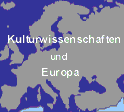
 |
Financing researchHistory, Present Practices, Suggestions |
|
In the past and in the present financing of research (and teaching) has been based on a range of models: wealthy patrons, donations from local government and industry, study grants, private foundations and state funding. Research at universities and research institutes has also been supported by a range of mixed financial models. The decisive factor in granting funding for university research in Europe today is educational needs, which occasioned intensive investment from the state first in the mid-nineteenth century and then in the 60s of the twentieth century. While meeting educational needs also dramatically improved the financial situation of teachers, it as surely bound the system to structures at odds with scientific pursuit: prescribed fields of work (professorships), hierarchies, political links and fixed teaching structures. However, as the twentieth century draws to a close, new social structures are opening new opportunities for science. Research and teaching structures need to orient themselves to these developments.
In Europe this new orientation continues to be hampered by the financing of structures which draw their legitimacy precisely from their resistance to change. And as long as this form of financing continues, little is likely to change. And change cannot come as long as a significant portion of funding is consumed by projects, which, because of this fragmentation, can develop modern cooperative endeavours in only a very limited form.
The resultant crisis, which has been continuing for some years, has affected more than the humanities. The attempt, by economic means, to achieve greater efficiency and practical applicability through abstract structural reform has been only marginally productive. That's because research must first formulate precisely those questions which can validly be answered. Scientific organisational structures need to be adjusted according to the appropriate questions and then to the quest for answers by means of specific methodologies, fields of information,etc. New teaching methods also need to be developed in line with new perceptions. Large organisations in particular would need centres capable of offering comprehensive services to attend to broad-ranging administrative tasks (proposals etc.) The public must be made aware of the significance of new research and teaching initiatives. Timely long term financing of research and teaching needs to be adjusted to reflect its scientific and social significance.
However, it's not only structures in universities which hamper flexibility. Quite a few academies, research organisations and research promotion organisations continue to draw their legitimacy from their (often barely reflected on) history, traditions and framework. Current questions and opportunties can be accomodated only to a limited extent. Administration is as fragmented as is research and teaching. Quite a few academics find themselves unemployed after graduation and left to their own devices when it comes to recognising fields of endeavour. In this way, such organisations begin to lose social significance, and with it the opportunity for state support.
It is without question possible to break this vicious circle. Proceeding from the basic thesis of this exhibition, the requirements for financing would grow and the means would follow from a number of sources. Examples in England, the USA, Australia and other countries show, however, that those organisations which haven't developed suggestions for new structures on their own initiative, have been abolished or suffer under the pressure of formal objective methods of evaluation. Although models continue to be supported which in only a limited fashion meet current requirements. For example, the model of the elite American universities of the nineteeenth century is no longer suitable to current social structures and is being increasingly pushed into the background. The education and formation of personality required to meet today's challenges can hardly be undertaken in the context of "virtual universities".
And so it is high time that the necessary foundations be created so
that science and teaching can pursue their true vocations and receive the
necessary financial support from combined sources.
|
|
|
|
|
|
|